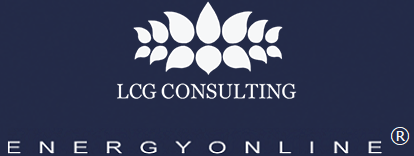|
News
|
LCG, February 24, 2026--The AES Corporation (AES) and Google today announced agreements for clean power generation that will be co-located with a new Google data center in Wilbarger County, Texas. The agreements include a 20-year Power Purchase Agreements (PPA) for co-located power generation. These coordinated energy projects and powered land will enable Google to rapidly expand its operations to meet demand for core services, while AES will expand its power generation portfolio.
Read more
|
|
LCG, February 23, 2026--Amazon today announced plans to invest $12 billion to develop and construct state-of-the-art data center campuses in northwest Louisiana that will support cloud computing technologies. Amazon is partnering with STACK Infrastructure, the developer and owner of the campuses, to lead the construction and development of the data center facilities. Amazon has already invested in solar energy projects in Louisiana, bringing up to 200 MW of new carbon-free energy onto the grid.
Read more
|
|
|
Industry News
Minnkota Power Cooperative and Summit Carbon Solutions Announce Agreement to Co-develop Carbon Sequestration Sites
LCG, May 5, 2022--Minnkota Power Cooperative (“Minnkota”), a North Dakota-based electric generation and transmission cooperative, and Summit Carbon Solutions (“Summit”), an Iowa-based firm focused on the decarbonization of the agriculture and biofuels industries, recently announced that they lhave reached an agreement to co-develop carbon dioxide (CO2) storage facilities near Center, North Dakota.
Minnkota and Summit have been working independently on the development of their respective carbon capture and storage projects – Minnkota with Project Tundra, which aims to install innovative carbon capture technologies at the Milton R. Young Station in North Dakota, and Summit Carbon Solutions with the capture and permanent storage of CO2 from dozens of ethanol plants across five states in the Upper Midwest. Together, Minnkota and Summit expect to be able to work more quickly, efficiently, and cost-effectively to advance their projects to commercial operations.
The agreement provides Summit with access to Minnkota’s already permitted 100-million-ton capacity CO2 storage site near Center, North Dakota, the largest of only three such permitted sites in the United States. The agreement also creates the framework to jointly develop additional CO2 storage resources nearby, which are estimated to have aggregate CO2 storage exceeding 200 million tons. The collaboration is beneficial to both Minnkota’s and Summit’s projects, as it reduces risk, accelerates the timeline for financing and construction, and provides increased operational flexibility when CO2 storage begins. These benefits importantly provide landowners an enhanced opportunity to maximize the value of the rock formations deep below the surface.
Minnkota’s Young Station, which will be modified to include carbon capture systems, is a mine-mouth power generating station that uses lignite coal supplied from the adjacent BNI Coal mine. The capacity of Unit 1 is 250 MW, and the capacity of Unit 2 is 455 MW.
The North Dakota Industrial Commission (NDIC) approved a permit in January that allows Minnkota to safely and permanently store CO2 at the Project Tundra site. Approval of the Class VI injection well permit is an important step forward. North Dakota is one of only two states that has received approval from the U.S. Environmental Protection Agency (EPA) to regulate geologic storage of CO2. This is the second Class VI injection well permit that has been issued in the state.
Minnkota’s President and CEO stated, “We are joining two of North Dakota’s most prominent industries – agriculture and energy – to substantially lower CO2 emissions, while helping preserve American energy security. If our nation is to stay competitive during the energy transition, it will require multiple states and industries working together. Our hope is that this effort can serve as a blueprint for the collaborative thinking that is needed to drive energy innovation forward.”
Summit’s Executive Vice President stated, “Summit Carbon Solutions is thrilled to team with Minnkota to accelerate our project and the decarbonization of biofuels and agriculture, which will greatly enhance the economic sustainability of those industries for decades to come. Working together, Summit Carbon Solutions and Minnkota will permanently and safely sequester tens of millions of tons of carbon dioxide every year, which will improve environmental outcomes while supporting industries critical to our region’s future.”
The announcement states that, once the storage facilities are operational, CO2 will be permanently stored approximately one mile underground in suitable geologic formations. The geology in the region has been thoroughly studied and tested to ensure that safety and environmental stewardship can be maintained. The stringent permitting processes required by the EPA and the NDIC will ensure the safe injection of CO2 into secure geologic storage formations with constant monitoring to protect the lowermost United States sources of drinking water, and to ensure the CO2 remains permanently in the storage area.
In addition to Minnkota’s CO2 storage facilities, Summit is independently developing storage facilities in North Dakota with estimated CO2 storage resources to permanently store approximately 1 billion tons of CO2, which is less than 1% of the estimated storage capacity in North Dakota.
Summit is also working with over 30 ethanol plants and biorefineries located in Iowa, Minnesota, North Dakota, South Dakota, and Nebraska to capture the CO2 from the fermentation process. The CO2 would then be compressed and transported via the Summit’s proposed Midwest Carbon Express pipeline pipeline to North Dakota geologic sequestration sites. Doing so will drastically reduce the carbon footprint of ethanol production and enhance the long-term economic viability of the ethanol and agriculture industries. Summit hopes to begin construction on the pipeline in 2023 and have the pipeline operating in 2024.
|
|
|
|
UPLAN-NPM
The Locational Marginal Price Model (LMP) Network Power Model
|
|
|
UPLAN-ACE
Day Ahead and Real Time Market Simulation
|
|
|
UPLAN-G
The Gas Procurement and Competitive Analysis System
|
|
|
PLATO
Database of Plants, Loads, Assets, Transmission...
|
|
|
|
|
